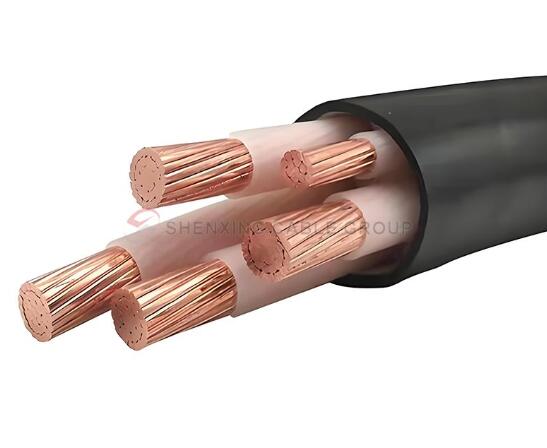Jan. 03, 2025
Power cables play a vital role in electrical systems, allowing for efficient electricity transmission in a variety of environments. Multiple types of power cables are tailored to meet specific needs based on voltage levels, installation conditions, and applications. According to a recent search on Google, power cables come in various types including low voltage, medium voltage, high voltage, and more, each serving unique applications in residential, commercial, and industrial settings.

Low voltage power cables are utilized in systems operating at up to 1,000 volts, commonly found in residential, commercial, and small industrial applications. They are typically used for lighting, appliances, and low-power devices, made from materials like copper or aluminum to promote flexibility and efficient energy transfer.
Medium voltage cables handle applications within the range of 1 kV to 35 kV and are often used in utility networks, industries, and large commercial facilities where elevated power levels are essential. These cables connect motors, transformers, and significant machinery, with XLPE (cross-linked polyethylene) insulation enhancing their resilience against environmental factors.
High voltage power cables are essential for transmitting power beyond 35 kV and are pivotal in long-distance transmission. These cables connect power generating stations to substations, engineered to minimize energy loss and withstand electrical stress with robust insulation and protective sheathing.
Flexible power cables are ideal for environments where frequent movement is necessary or where tight bends are required. Commonly used in robotics, portable devices, and temporary installations, these cables utilize fine copper strands with elastomeric insulation for flexibility without sacrificing safety and conductivity.
Armored power cables are built for environments needing mechanical protection. A robust layer of steel or aluminum armor protects the conductors from damage, making them perfect for underground installations, industrial sites, and outdoor applications.
Control cables facilitate signal transmission in automated systems and are crucial in areas like industrial machinery, railway signaling, and communications. Designed with resistance to interference, they are built for reliable performance in intricate setups.
In critical safety environments, fire-resistant and flame-retardant cables are vital. They maintain functionality during emergencies, enabling essential systems like alarms and emergency lights to operate effectively. These cables are commonly used in hospitals, airports, and busy commercial buildings to ensure safety and compliance with regulations.
Coaxial cables, while primarily for signal transmission, are also employed in specialized power applications requiring low voltage and high frequency. They are prevalent in telecommunications, broadcasting, and internet systems, designed to reduce signal loss and interference due to their unique construction.
Choosing the appropriate power cable hinges on your project's specific needs including environmental conditions, application types, and voltage requirements. A well-selected cable promises dependable performance, safety, and longevity. Whether for residential, industrial, or large-scale power transmission, understanding cable types is imperative.
For quality power cables tailored to your requirements, collaborate with an experienced supplier. If you are ready to discuss your project or seek expert advice, contact us today to explore our comprehensive range of power cable solutions.
If you are interested in sending in a Guest Blogger Submission,welcome to write for us!
All Comments ( 0 )